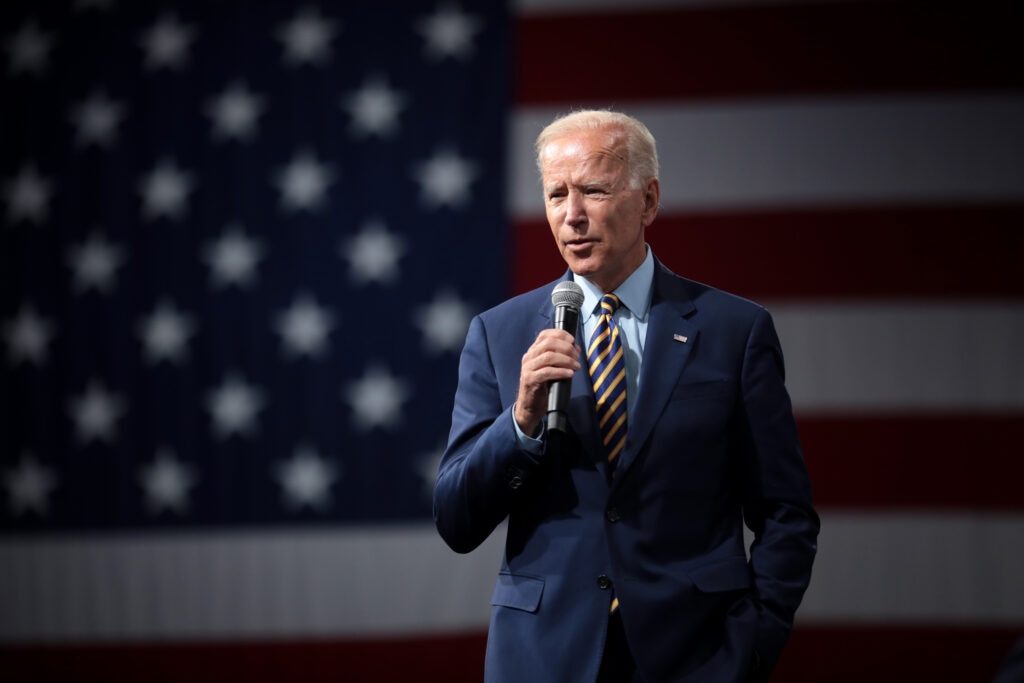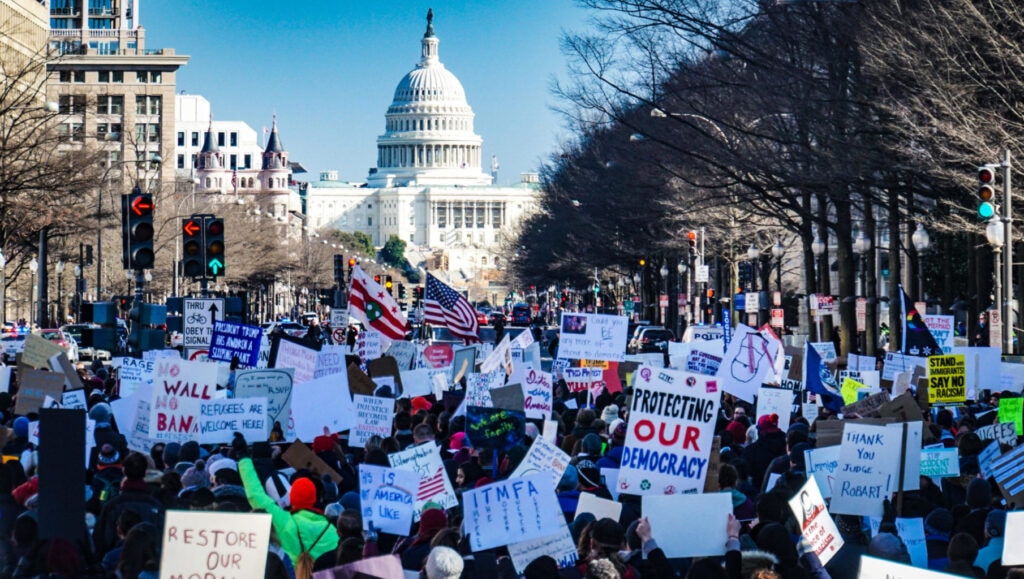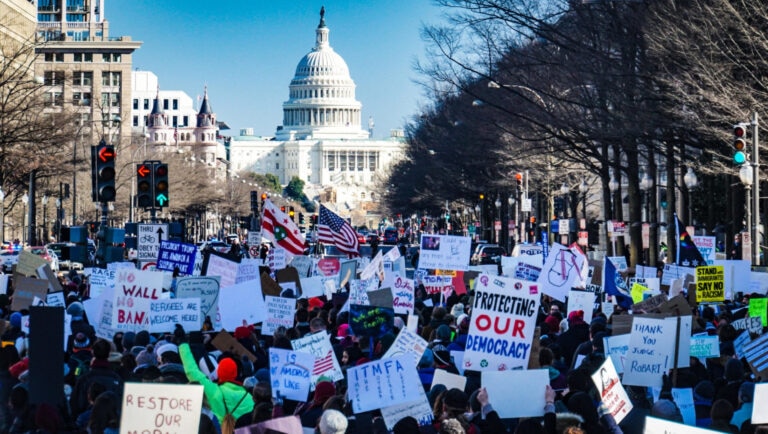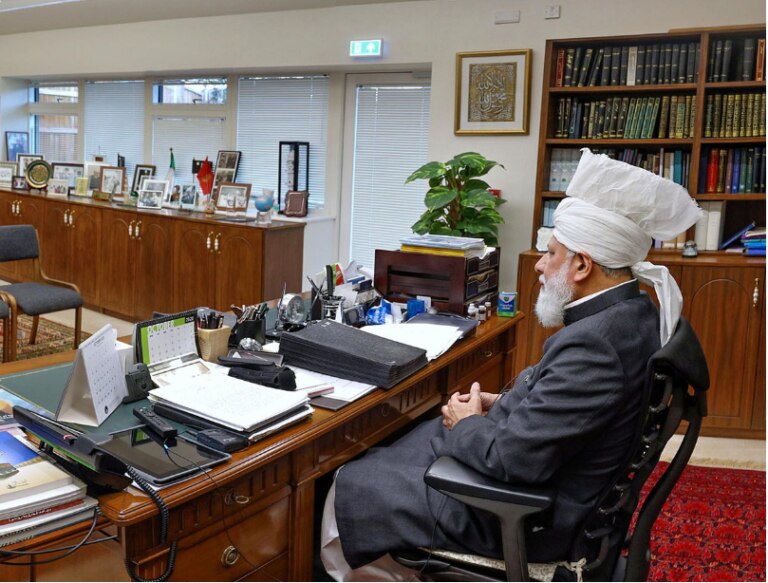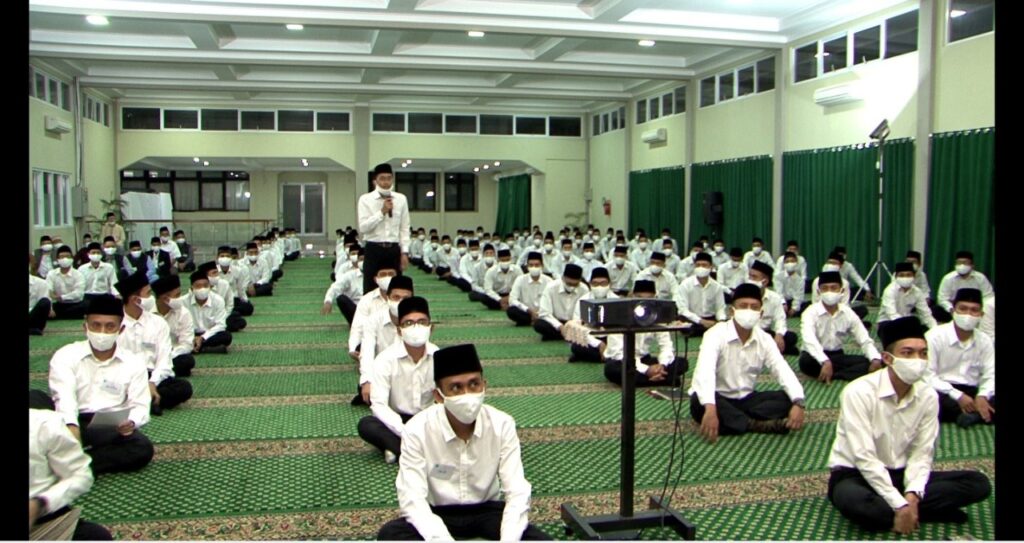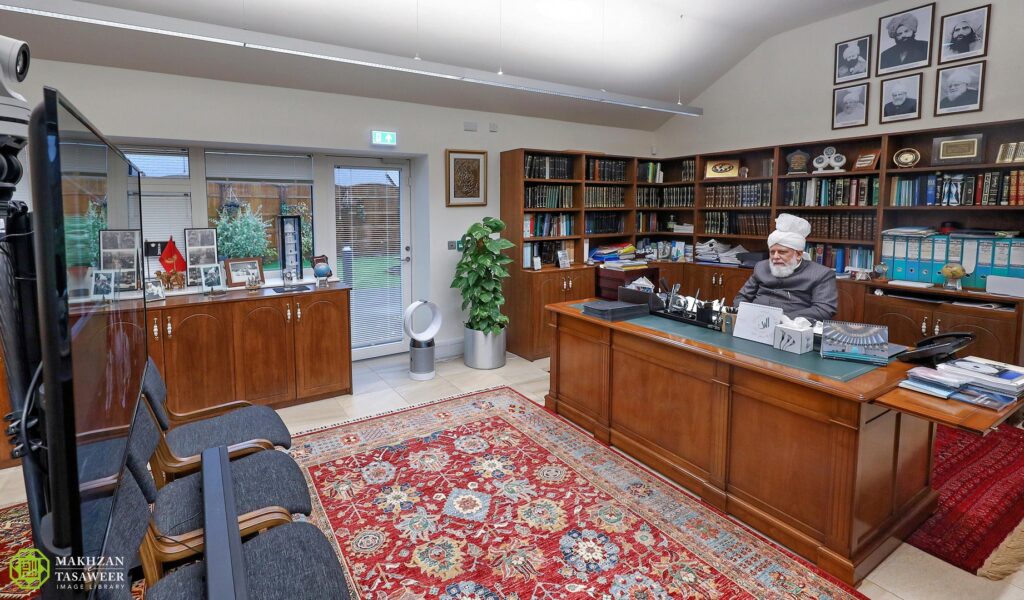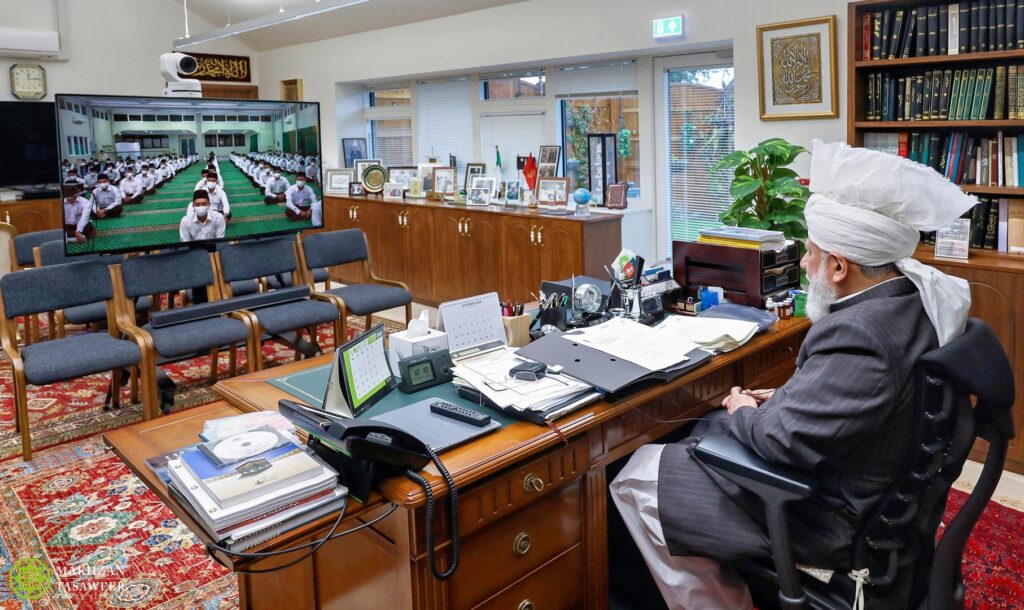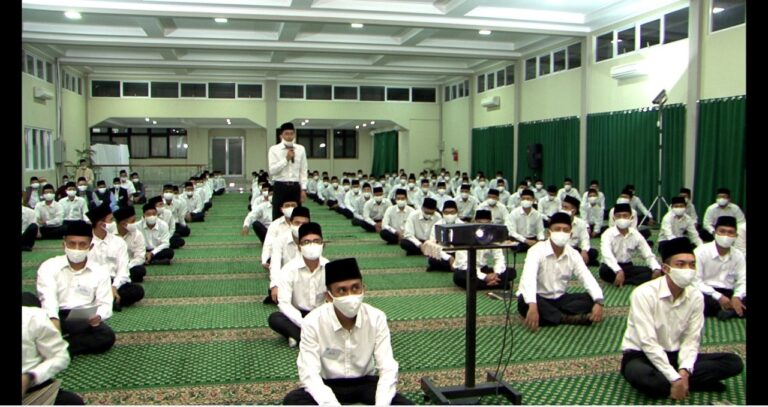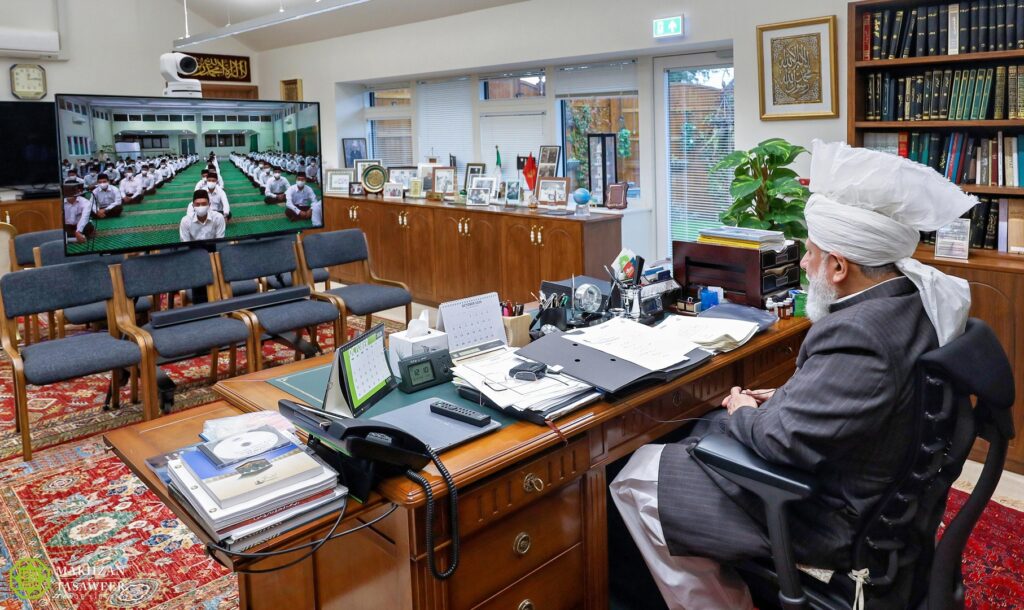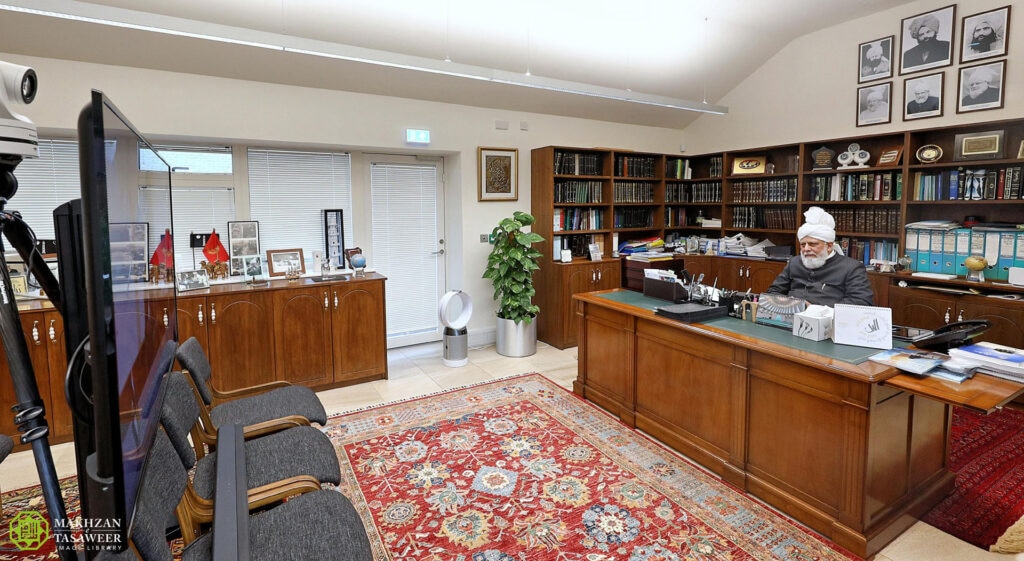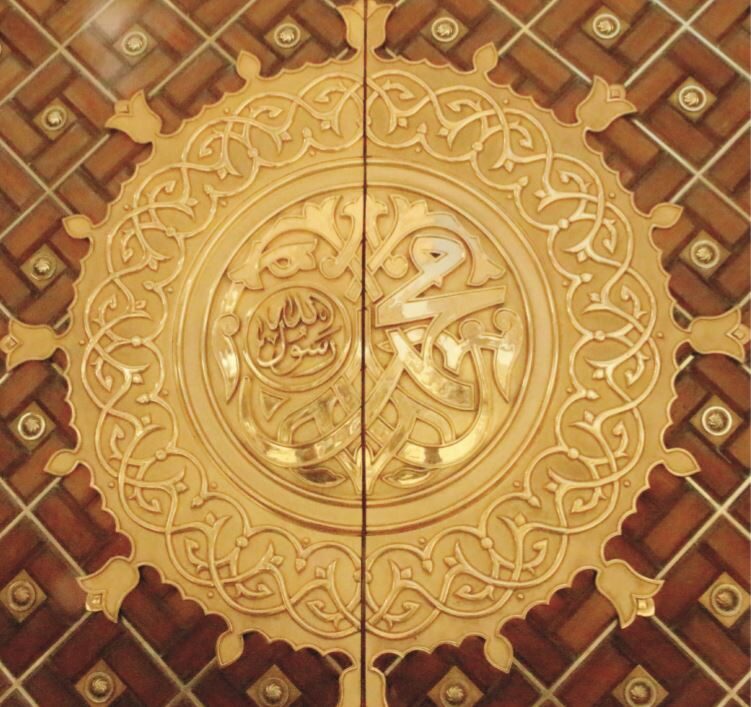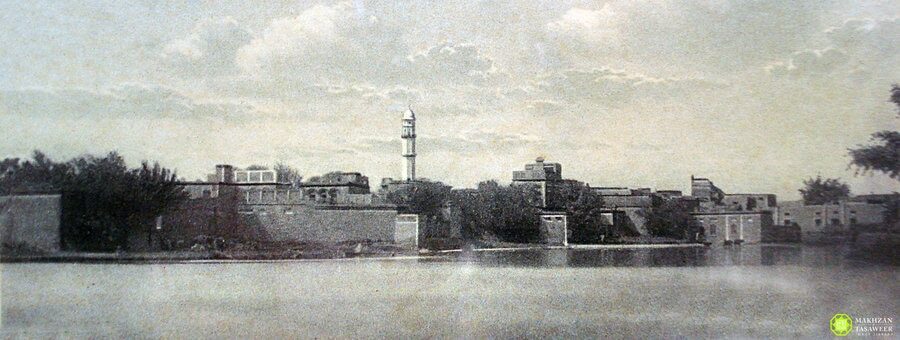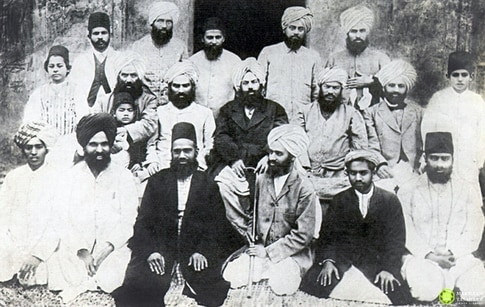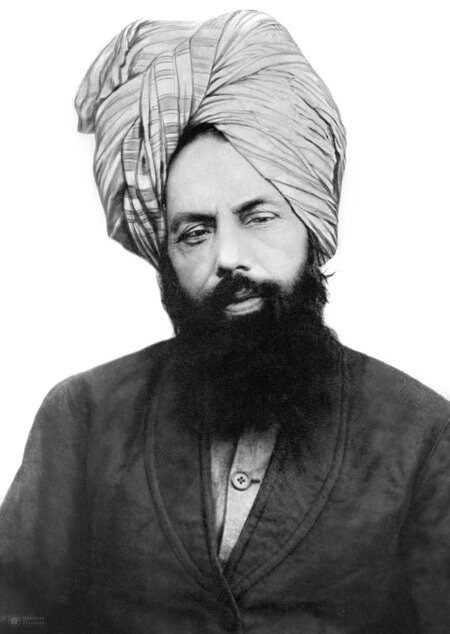Part I – Part II – Part III
Zafar Bhatti, UK
Having written something about the background of Khilafat, a summary of the critique of Evans’ work and also some of the motivations that seem to have coloured Evans’ views, I will now review and respond to some of the specific allegations raised.
The very first objections levelled against the Ahmadiyya Muslim Community are contained within the title of Evans’ work, “Far from the Caliph’s Gaze” and “Being Ahmadi Muslim in the Holy City of Qadian”.
The use of “The Holy City of Qadian”
The Ahmadiyya Muslim Community is a persecuted group and in some countries, the persecution has reached intense levels. Hundreds of Ahmadis have been murdered and mobs have enacted the most heinous and heart rendering crimes; men have been stripped naked and beaten to death; children have been left to die in burning buildings; men have shielded their children from the bullets of attackers and Ahmadis have even been stoned to death.
This persecution is perpetuated by a religious clergy that deliberately misrepresents the views of Islam Ahmadiyyat to the Muslim masses. One of the chief tools they use is to say that Ahmadis have created their own religion, that we believe in a new Prophet whom we consider (God forbid) to be superior to the Holy Prophet Muhammadsa, that Ahmadis believe in a new book that supersedes the Holy Quran and that we believe there is a new “Holy City” which rivals Mecca and Ahmadis have a new pilgrimage which they undertake to this “Holy City”.
These allegations are all completely false and do not have an iota of truth; not a single Ahmadi can be found that holds such beliefs and not a single piece of literature through the history of Ahmadiyyat provides any support for such contentions.
However, our opponents continue to perpetrate these lies, not only as an intellectual argument, but also as a tool for provoking mobs into a frenzy. As such, these false troupes directly lead to violent and non-violent persecution of Ahmadis.
Evans is acutely aware of this and in the past has acknowledged the fact that one must not use rhetoric that could be used against the Ahmadiyya Muslim Community as this will exasperate the persecution.
Yet, by using the words “the Holy City of Qadian”, Evans on the very title page does precisely this – knowing the consequences; knowing that perpetuating this myth adds fuel to the fire of hatred against the Ahmadiyya Muslim Community; knowing that such rhetoric will play directly into the hands of a zealous anti-Ahmadiyya religious clergy.
It may be asked why this is such a contentious issue. Do Ahmadis not believe Qadian to be “holy”? The reason this is so contentious is that in the Muslim World, we refer to Mecca as the “Holy City”. Just as we refer to Muhammadsa as the “Holy Prophet”; even though Muslims believe every prophet to be holy, the epithet “the Holy” Prophet is used for Muhammadsa alone.
In a similar vein, although Muslims believe every place where a prophet was sent is deemed a holy land and place and as such, Qadian is certainly a holy place and town, the use of the words “the Holy City” as an epithet and title is primarily reserved for the city of Mecca.
By referring to the town of Qadian as “the Holy City” sets it up as a rival to the Holy City of Mecca itself; thereby re-enforcing the prejudices of the Muslim masses against the Ahmadiyya Muslim community and providing further ammunition to the opponents of the Ahmadiyya in their efforts to ostracise the Ahmadiyya Muslim Community from Islam itself.
One may think that I am overexaggerating the impact of Evans’ use, but words have consequences. Evans’ words are not on a social media post or Twitter feed, where sporadically even some Ahmadis out of their love for Qadian may have referred to it as a “Holy City” in the context of that explained so far, but it is a literary piece already being used and quoted by the opponents of the Ahmadiyya Muslim Community.
In actual fact, something that is known to every visitor of Qadian, let alone one who stayed there for 15 months, is that the epithet used by Ahmadis for Qadian is “Dar-ul-Aman”, which means “abode of peace” and Evans is aware of this:
“Qadian is colloquially referred to as the dar-ul-aman, a home of peace and sanctuary, and visiting Ahmadis praise it for a simplicity that enables them to feel closer to God.” (Far From the Caliph’s Gaze, p. 27)
But instead, Evans deliberately chooses to avoid the title Ahmadis uses for their own town and uses a title which reinforces the prejudices and misconceptions against the Ahmadiyya Muslim Community.
“Far from the Caliph’s gaze”
The central plank of Evans’ ethnographic study of Qadian is based on the premise that in some way, Qadian is uniquely placed in the world of Ahmadiyyat as “Far from the Caliph’s gaze.” Qadian is the birthplace of the Ahmadiyya Muslim Community and served as its headquarters until the partition of India in 1947. Evans contends that after the partition, Qadian “was forever abandoned by the caliph”. (Ibid, p. 13)
This geographical distance from the Caliph, according to Evans, has created a dilemma for the Ahmadis of Qadian who are in a state of perpetual anxiety to prove their own “Muslimness”. Evans tends to have a penchant to emphasise this distance and uses phrases like the “caliphs have only visited Qadian twice” (Ibid, p. 26) or “Is it enough to just love from afar?” (Ibid, p. 27)
He states that this anxiety of those in Qadian is magnified by the persecution of Ahmadis and the denial of Ahmadis to express what Evans describes as “Muslimness”:
“In short, Qadian is caught within a double insecurity of being Muslim: it is a place in which Muslimness is denied from without and yet also difficult to prove from within.” (Ibid)
We can summarise Evans’ foundational structure for his argument in the following way:
1. Qadian was abandoned by the Khalifa and cut-off from the organisation of Ahmadiyyat.
2. Qadian is isolated from the Khalifa.
3. Mainstream Muslim opposition to the Ahmadiyya Muslim Community has heightened the anxiety of those in Qadian with regard to their Muslim identity.
4. Qadian has a unique place in the Ahmadiyya Muslim Community as the place where its founder the Promised Messiahas was born, lived and founded the community.
According to Evans the above four points have led to a psychology in Qadian where Ahmadis are constantly trying to prove their “Muslimness”. The only one of the above points that has validity is point four.
We will examine the validity of the other points in turn, and then examine them altogether, before finally examining what “Muslimness” means to an Ahmadi Muslim.
Qadian was abandoned by the Khalifa and cut off from the Ahmadiyya organisational structure
In what can only be described as a colossal feat of scholastical gymnastics, Evans attempts to construct an alternative narrative to the forced emigration of the Ahmadiyya Muslim Community from its birthplace, Qadian. He implies that the Khalifa at the time not only voluntarily emigrated from Qadian, but in actual fact, abandoned it:
“Qadian’s eventual location in independent India nonetheless presented the Jama‘at with a problem, for it threatened to place the Ahmadis outside of the new center of Islam in the subcontinent. The caliph thus decided to abandon the town in order to stake a claim to membership of the Muslim state of Pakistan and thus affirm Ahmadi belonging within Islam.” (Far From the Caliph’s Gaze, p. 25)
This, in Evans’ view, then resulted in Qadian becoming isolated and lacking “any sense of integration into the broader global Jama‘at.” (Ibid)
This alternative narrative is entirely false, and has nothing to do with what actually took place. Forced or voluntary migration? 15 million people displaced, one million dead: the partition of India in 1947 “began one of the greatest migrations in human history” (www.newyorker.com/magazine/2015/06/29/the-great-divide-books-dalrymple) as millions of Hindus, Sikhs and Muslims fled for their lives from their ancestral homes where they had lived for centuries.
It is one of the most harrowing events in human history and has even been described as “the holocaust of Indian Partition” by Madhav Godpole.
The carnage in Punjab – the state in which Qadian is also situated – “was especially intense, with massacres, arson, forced conversions, mass abductions, and savage sexual violence. Some seventy-five thousand women were raped, and many of them were then disfigured or dismembered”. (Ibid)
It is difficult to describe the nightmare that befell not just the Ahmadiyya Muslim Community but every community in India during the Indian partition of 1947. Perhaps almost every family that has links to the Indian subcontinent can narrate a harrowing incident of a family member fighting for their very life to survive that period.
For myself, I particularly remember the incident of my late aunt, Safia Sheikh, who resided in Qadian at that time. She recounts that it was her brother-in-law that took her to board a train into India; finding no space on the train, she recalls how he spotted a space by an open window and literally picked her up and shoved her through the window; it was life and death for the millions of people fleeing.
Iain Adamson in A Man of God describes the precarious position that Qadian found itself in as follows:
“The Muslims of many Punjab villages were massacred. Convoys were attacked, looted and anyone who fell into their hands was butchered mercilessly, but for thirty miles around Qadian the Ahmadi patrols kept the terrorists away from the villages under their protection.” (A Man of God, p. 59)
The Second Khalifa of the Ahmadiyya Muslim Community explained:
“One can glean the antagonistic intentions of these people from [the following]. An English Colonel appointed in Batala came and told me, ‘I know what these people are planning. You cannot imagine the havoc that these people are about to wreak against the Muslims after August 31st.’ While saying all this, the man was overwhelmed with tears, but forcefully composed himself, turning his face away.’” (www.reviewofreligions.org/15896/migration-a-mandate-of-divinecommunities/#_edn6)
It is in this scenario that the Khalifa of the time, Hazrat Mirza Bashiruddin Mahmud Ahmadra made a decision: to leave and emigrate from the birthplace of Ahmadiyyat, the blessed resting place of the Promised Messiahas, the blessed town where he had lived and spent his life and to move the very headquarters of the community to an unknown land or risk the uncertainty of a new India.
Even on a personal level, the Khalifa had more to lose than any other person in Qadian, it was his ancestral home and his family had been known as the “Chiefs of Qadian”. When we read the history of this moment, the anguish of the community is starkly visible. The Khalifa and members of the community are in constant prayers and seeking guidance in the revelations of the Promised Messiahas, whilst at the same time spending day and night facing the trials and tribulations engulfing India at that time.
We can see a flavour of that anguish as the second Khalifa finally makes the decision to leave his beloved Qadian:
“On 28 [August 1947], the government issued an announcement that after 31 August, the local government of each area would be responsible for its own security. This meant that the Indian Union had taken full control of Qadian. I resolved then and there that if I was to leave, I must try to do something immediately, otherwise leaving Qadian would become impossible.’” (Ibid)
The Ahmadiyya Muslim Community was left with no choice but to leave Qadian, and this decision can be further understood in light of the fact that Qadian was left as “the only Muslim Community in the Indian Province of the Punjab”. (Fazl-e-Umar, p. 261)
It is important to note here that Qadian fell in the Gurdaspur district and it was generally known that Gurdaspur would fall in the newly formed Muslim Indian state called Pakistan. It was during this time that the Second Khalifa made the decision that the Jamaat would side with the Muslims and remain with the newly formed state. However, a hasty overnight decision was made by the boundaries commission that Gurdaspur would be included within India – Qadian fell in Gurdaspur.
In this situation the Second Khalifa felt the need to stay in Pakistan for the support of Muslim solidarity which he had already committed too. The enormity of this decision is magnified further as the community had nowhere to go; there was no new home to easily shift into.
Describing his own anxiety, the Khalifa says that after arriving in Pakistan, “I began to fully realise that I was not simply faced with uprooting a single tree and replanting it elsewhere; rather, I must dig up an entire garden and replant it afresh. And so, it is imperative for us that a new headquarters be established immediately and with it, new central offices as well.” (Tarikh-e-Ahmadiyyat, Vol. 9, pp. 747-748)
In the end, the community was only able to find a barren tract of land:
“There were no trees. There was no water. The soil was salty. Its only inhabitants appeared to be snakes and scorpions, wolves and jackals.” (A Man of God, p. 61)
Another Ahmadi scholar said that “locals as well as agricultural experts insisted that the soil at this location could not support any vegetation. Plants could not be grown and sustaining any shade bearing trees would therefore be impossible. They argued that it was therefore totally unsuitable for the needs of the Community.” (Fazl-e-Umar, p. 255)
To describe the harrowing events of 1947 in a way that creates the impression that the Khalifa voluntarily left Qadian and “decided to abandon the town in order to stake a claim to membership of the Muslim state of Pakistan and thus affirm Ahmadi belonging within Islam” (Far from the Caliph’s Gaze, p. 25) is just another example of Evans twisting narratives to present an untruth.
In this instance it demonstrates an astonishing degree of insensitivity to not just the Ahmadiyya Muslim Community who lost life and property whilst trying to hold onto Qadian but to the other millions of people who were forced to migrate from their ancestral lands and homes and the many who lost their lives.
It should be obvious for anyone who has ever cast even a cursory glance at the history of those times to realise that there was no option for the Khalifa but to leave Qadian.
“Abandoning” Qadian
Evans continually refers to the migration of the community from Qadian as if the Khalifa abandoned the town. Facts show that neither was Qadian abandoned by the Khalifa at the time of migration, nor was it abandoned after the migration, nor was the memory of Qadian wiped from the hearts of the Khalifa or the Ahmadiyya Muslim Community.
Upon leaving Qadian, the Khalifa himself represented his personal stake in the safeguarding of Qadian by leaving his brother, Hazrat Mirza Bashir Ahmadra, as his representative. This not only provided morale for those remaining behind, but also served as the Khalifa setting the example.
Additionally, in those early and most precarious months, the elder sons of the Khalifa would take it on a turn by turn basis to reside in Qadian. Eventually, after several months passed, an assessment was made and it was decided to leave a group of 313 men to protect the sacred sites of Qadian and to evacuate the remaining Ahmadis.
Describing this moment, Evans, without providing any evidence, incorrectly says, “At partition, the core of educated and wealthy Ahmadi families left Qadian in the care of a few hundred young men who were chosen for their strength, not their education.” (Far From the Caliph’s Gaze, p. 78)
As has been stated previously all men, women and children despite their wealth or education were desperately trying switch between India and Pakistan – wealth and education had nothing to do with it. Furthermore the manner in which Ahmadis were chosen with the honour of protecting the sacred sites of Qadian was as follows:
“All Ahmadis were asked as to who would voluntarily remain behind, after which lots were drawn from various categories of Ahmadis. For instance, the family of the Promised Messiahas had separate lots drawn; fundamental departments of Sadr Anjuman Ahmadiyya and Tahrik-e-Jadid ensured that its representatives would remain behind to continue the work of the respective offices; lots were drawn for those Ahmadis that were skilled in certain professions and for the benefit of the local population, Ahmadis employed in utility services such as tailors and barbers had separate lots drawn for them.” (www.alhakam.org/darweshan-e-qadian/)
Amongst the Khalifa’s own sons, it would be Hazrat Mirza Wasim Ahmad Sahib who would remain behind and serve in Qadian till the last of his days in 2007. At the time of migration, Qadian was never abandoned; structures were put in place to safeguard the sacred sites of Qadian and the Khalifa set the example by dedicating his own sons to protect it.
Following the migration, the next few years would be a challenging period to the residents of Qadian; however, slowly but surely, “the situation crawled towards normality and in the end arrived at stability. The office-bearers of the revived institutions established contact with the branches of the Movement all over India and Qadian functioned once more as the headquarters of the Movement for the whole of India. All activities pertaining to the headquarters were resumed. A school was established, a weekly paper began to be published and the Annual Conference was revived.” (Fazl-e-Umar, p. 260)
From this, one can see that Evans’ further contention that “Qadian lacked any sense of integration into the broader global Jama‘at” is also false. Not only did Qadian begin functioning again as the headquarters of India, but it continued to benefit from the guidance and direction of the Khalifa. Even if the administration had not got back on to its feet, the fact is that the residents of Qadian would never lack any sense of integration, as they are the custodians of the birthplace and sacred sites of Islam Ahmadiyyat, therefore they would always understand their crucial role in the “broader global Jama‘at”.
Evans develops this theme of Qadian’s apparent perception of being separated from the global system of the Jamaat:
“Qadian is the center of an Indian bureaucracy that parallels that of the larger global Jama‘at system. Far from being a cause for celebration, this special status is deeply troubling for Ahmadis in Qadian, for it is a continuous reminder of their separation from the global Jama‘at and hence the caliphate” (Far From the Caliph’s Gaze, p. 82).
Evans presents this without citing a single person who actually finds it “deeply troubling” that Qadian has its own administrative structure. The statement is itself self-contradictory; by having its own administrative structure naturally implies that the system directly reports to the Khalifa, which means that it bypasses the administration in Rabwah – as such, rather than becoming a means of “separation” from “the caliphate” it makes the connection stronger.
This also shows Evans’ misunderstanding of how the Jamat structure actually operates. Each country’s administration is in actual fact directly reporting to the Khalifa. There are additional structures, but it is indeed a distinction of Qadian and India’s importance that even those structures are directly reporting to the Khalifa. Instead of this being a cause of anxiety, as Evans imagines, it is a definite cause for honour that the people of Qadian feel with their unique status in the world of Ahmadiyyat.
Finally, we come to the fact that Qadian was never abandoned in the hearts of any Ahmadi and can never be abandoned. The birthplace of any religious movement where the beloved of God set foot is never forgotten, in fact history shows that “absence makes the heart grow fonder”. And this we find in members of the community, which is beautifully summed up in the words of the Second and Fourth Khulafa, both of whom never forgot the pangs of separation from their beloved Qadian:
“Sometimes it [the separation from Qadian] feels as though my heart will break into pieces. However, if I have made this resolve, then why should I dilute this determination with tears?
“We shall hold back our tears until the day that we take back Qadian as our headquarters once again.” (www.reviewofreligions.org/15896/migration-amandate-of-divine-communities/#_edn10)
“Country to country I carry in my heart the memories [of Qadian].” (Kalam-e-Tahir, poem written by Hazrat Mirza Tahir Ahmadrh on his return to Qadian in 1990)
Click here for Part V
